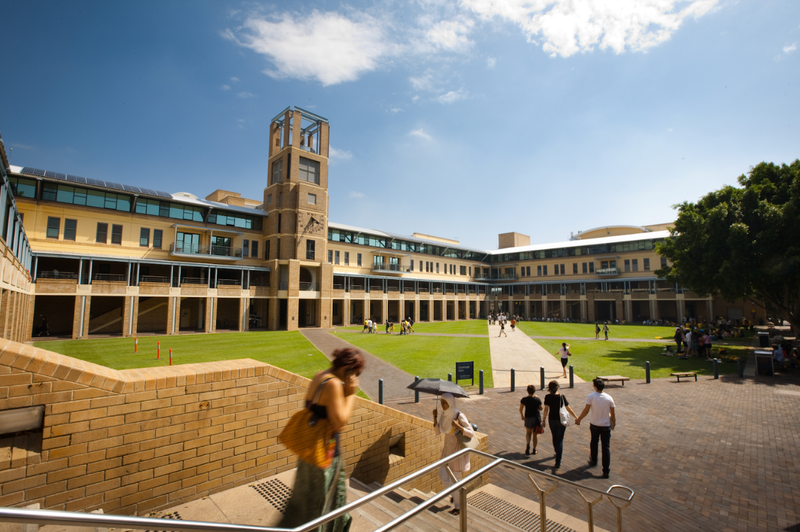Care, not ATAR, 'still at the heart of education'
Educators are calling for better support for the teaching profession.

Care must remain at the heart of teacher training, no matter the tertiary entrance score, Victorian educators say.
A national taskforce earlier this year proposed a target ATAR of 80 for future teachers—well above the current Victorian Government requirement of 70—in a bid to lift teaching standards.
But care is still the most important factor in teacher training, according to the educators Mojo News spoke to in recent weeks.
Incoming education students need to consider the significance of care to the profession, according to Ilana Rosenbluh, Professor of Education at Australia’s largest university, Monash, where entry to a Bachelor of Education majoring in primary and secondary teaching requires an ATAR of 71.
“We know that the most important factor in teaching is care: teacher-student relationships,” Professor Rosenbluh says.
She points out that standards-based testing (like NAPLAN), which is common among Western nations, can cause tensions between education outcomes and teacher-student relationships.
First-year Monash Bachelor of Education student Reagan Morel, 19, of Melbourne’s south-east, says he strongly disagrees with the proposed ATAR increase.
“It definitely takes a lot more than academic skills to be a teacher,” Mr Morel says.
“By taking your smartest people, in the sense that they got a good ATAR, not necessarily the people with great interpersonal skills or outside-the-box thinkers, you are excluding those people in a profession where they are needed most.”
The education sector faces a suite of challenges in the wake of the shift to online learning during the COVID-19 pandemic, including teacher retention.
In March, an Independent Schools Victoria report, “Why Do Teachers Teach?”, found that while 16 percent of teachers felt more fulfilled post-COVID, almost half (49 per cent) did not.
Nicola Forrest, Principal of Cornish College, a co-educational, independent school in Melbourne, says it is “not a score” that makes a good teacher.
“If the score is about discipline knowledge, then we are barking up the wrong tree,” Ms Forrest says. “If you ask any teacher, ‘What do you teach?’ I would hope they would say, ‘Children’.”
She says the pandemic was disruptive for Cornish College and running the “Cornish@Home” program was one the most difficult challenges faced in her time as principal. The online shift had a significant impact on teaching staff too.
But Ms Forrest notes that well before the pandemic, the sector was dealing with critical issues including the social needs of adolescents and burnout in the classroom.
“Dealing with social issues, families are having challenges, kids are having challenges ... and family breakdowns—and that all plays out for a teacher in their classroom,” she says.
Professor Rosenbluh also cites intensive workloads and the “emotional wellbeing aspects”, for both students and teachers, as having exacerbated problems with teacher retention.
Many schools are finding their own strategies to address the challenges.
Ms Forrest says the Design Futures program at Cornish College is one such strategy that has proved successful for students seeking entry to an education degree, regardless of ATAR.
The program enables students to get involved in an inquiry-based learning method, rather than teachers structuring a course for students.
Ms Forrest says teachers can “act as disruptors for learning”, given the ease of access to information on the internet. But this program allows students to co-create their own curriculum, aligned with their interests.
“If you’ve got a kid who can demonstrate 100 hours of self-regulated learning, I’d be pretty confident that they’d have some of what it takes to be a good teacher,” she says.
“There is a difference between schooling and education, and I think the government is underestimating the role of schooling in society.”
Another proposed solution to some of the challenges the education sector faces is better pay. In Victoria, a state schoolteacher's annual pay (entry-level) is about $76,000 per year before tax.
Education commentator, author and former school principal Adam Voight says it’s about remunerating teachers to better reflect the workload they face.
“We can get the outcome, but we need to do that by making a career in teaching more attractive,” Mr Voight says.
“What are [teachers] comparing to? It’s not [other] states or other countries. They are comparing how much they can make if they go down a mine, or enter the corporate world,” he says.
This idea has Mr Morel’s backing too.
“A pay rise needs to be on the cards,” he said.
Yet Ms Forrest says she doesn’t believe that salary is the sole key to addressing the teacher shortage or the issues teachers face on a day-to-day basis.
She wants more resources in the system to help teachers educate their students, rather than administration.
“What keeps us up at night is the burnout of our academic care team leaders, the burnout of a classroom teacher, the burnout of a teacher who’s going above and beyond to care about the mental health and wellbeing of kids,” she says.
“That’s stopping them from doing the quality teaching and feedback that comes just from the instructional level.”
Ms Forrest says bringing in more resources such as teacher aides to support the administrative and emotional loads that teachers face would enable teachers to do what they do best: teach.
Professor Rosenbluh says Monash aims to continually improve the Bachelor of Education degree by focusing on a “connection between theory and practice” - to improve the outcomes for future teachers.
She offers the following advice to students: “Remember why you wanted to join this profession in the first place.”





